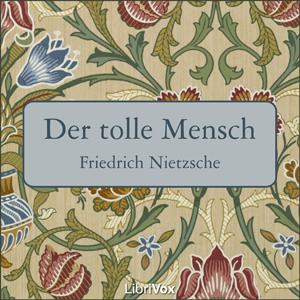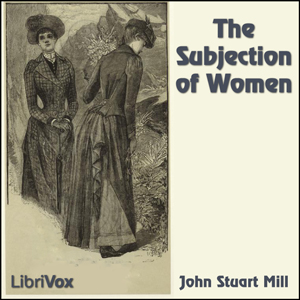- Criticism of the Kantian Philosophy 01
- Criticism of the Kantian Philosophy 02
- Criticism of the Kantian Philosophy 03
- Criticism of the Kantian Philosophy 04
- Criticism of the Kantian Philosophy 05
- Criticism of the Kantian Philosophy 06
- Criticism of the Kantian Philosophy 07
- Criticism of the Kantian Philosophy 08
- Criticism of the Kantian Philosophy 09
- Criticism of the Kantian Philosophy 10
- Criticism of the Kantian Philosophy 11
- Criticism of the Kantian Philosophy 12
- Criticism of the Kantian Philosophy 13
- Criticism of the Kantian Philosophy 14
- Criticism of the Kantian Philosophy 15
- Criticism of the Kantian Philosophy 16
- Criticism of the Kantian Philosophy 17
- Criticism of the Kantian Philosophy 18
- Criticism of the Kantian Philosophy 19
- Criticism of the Kantian Philosophy 20
- Criticism of the Kantian Philosophy 21
- Criticism of the Kantian Philosophy 22
- Criticism of the Kantian Philosophy 23
- Criticism of the Kantian Philosophy 24
- I. The Standpoint of Idealism, Pt. 1
- I. The Standpoint of Idealism, Pt. 2
- I. The Standpoint of Idealism, Pt. 3
- II. The Doctrine of Perception, or Knowledge of Understanding
- III. On the Senses
- IV. On Knowledge A Priori, Pt. 1
- IV. On Knowledge A Priori, Pt. 2
- IV. On Knowledge A Priori, Pt. 3
- IV. On Knowledge A Priori, Pt. 4
- V. On the Irrational Intellect
- VI. The Doctrine of Abstract or Rational Knowledge
- VII. On the Relation of the Concrete Knowledge of Perception to Abstract Knowledge, Pt. 1
- VII. On the Relation of the Concrete Knowledge of Perception to Abstract Knowledge, Pt. 2
- VII. On the Relation of the Concrete Knowledge of Perception to Abstract Knowledge, Pt. 3
- VIII. On the Theory of the Ludicrous, Pt. 1
- VIII. On the Theory of the Ludicrous, Pt. 2
- IX. On Logic in General
- X. On the Syllogism
- XI. On Rhetoric
- XII. On the Doctrine of Science
- XIII. On the Methods of Mathematics
- XIV. On the Association of Ideas
- XV. On the Essential Imperfections of the Intellect, Pt. 1
- XV. On the Essential Imperfections of the Intellect, Pt. 2
- XVI. On the Practical Use of Reason & On Stoicism, Pt. 1
- XVI. On the Practical Use of Reason & On Stoicism, Pt. 2
- XVII. On Man's Need of Metaphysics, Pt. 1
- XVII. On Man's Need of Metaphysics, Pt. 2
- XVII. On Man's Need of Metaphysics, Pt. 3
- XVII. On Man's Need of Metaphysics, Pt. 4
- XVIII. On the Possibility of Knowing the Thing In Itself
- XIX. On the Primacy of the Will in Self-Consciousness, Pt. 1
- XIX. On the Primacy of the Will in Self-Consciousness, Pt. 2
- XIX. On the Primacy of the Will in Self-Consciousness, Pt. 3
- XIX. On the Primacy of the Will in Self-Consciousness, Pt. 4
- XIX. On the Primacy of the Will in Self-Consciousness, Pt. 5
- XIX. On the Primacy of the Will in Self-Consciousness, Pt. 6
- XX. Objectification of the Will in the Animal Organism, Pt. 1
- XX. Objectification of the Will in the Animal Organism, Pt. 2
- XX. Objectification of the Will in the Animal Organism, Pt. 3
- XX. Objectification of the Will in the Animal Organism, Pt. 4
In this work, Schopenhauer explains his fundamental idea that at the root of the reality we see around us is a Will that eternally, insatiably seeks to be satisfied. Each human Subject observes the Objects around her from the perspective of that fundamental Will working within each person. The human observer is distracted by the details of life and individual distinctions that obscure this Will; only by penetrating this “principium individuationis” (which is enslaved by the cause-and-effect tyranny of the Principle of Sufficient Reason) can the observer perceive the essential Thing-In-Itself. Art has the power to make us see the Thing-In-Itself, the Platonic Idea freed from the individual particular manifestation of it, thus enabling us to transcend the individual Will and perceive something of true Reality. Perceiving the common Will in all humanity, we are able to come closer to an ego-less love based on that shared essence. Schopenhauer squarely faces the fact that existence is fundamentally suffering, but it would be simplistic to label him (as is so often done) as nothing but a pessimist. His affirmation of Art and Love is a transforming principle, having a powerful influence on writers such as Tolstoy. In the end, he chooses the Way of Negation as the path toward peace; by denying our Will, by silencing the many outbreaks of Will in our lives, we can approach the ultimate peace of annihilation that is the theme of the great Vedic philosophy of India, to which Schopenhauer admits his profound debt. ( Expatriate)
There are no reviews for this eBook.
There are no comments for this eBook.
You must log in to post a comment.
Log in











